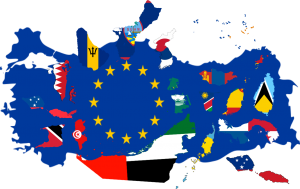
The EU originally examined 92 jurisdictions and has worked hard to finalize the list. There were different views and perceptions on this action by the EU. Some says that the decision was politically led while some supported it and are willing to adhere to tough measures against the listed tax havens.
The countries on the list are American Samoa, Bahrain, Barbados, Grenada, Guam, Macau, the Marshall Islands, Mongolia, Namibia, Palau, Panama, Saint Lucia, Samoa, South Korea, Trinidad and Tobago, Tunisia and the United Arab Emirates.
United Arab Emirates was surprised and disappointed for being listed as one of the non-compliant global tax jurisdictions, however, they remain positive and expecting to be removed from the list when the outstanding measures have been implemented in 2018.
On the other hand, according to the news published by The National on December 6, 2017, “UAE based wealth managers have said that the move made by EU to include the UAE in the blacklist of 17 global tax havens is not credible and likely to have a negligible effect on the banking industry which has in recent years intensified efforts to clamp down on financial crime”.
The Chief Executive officer of Emirates Investment Bank, Mr. Khaled Sifri, had also shared his thoughts when interviewed by The National and said that the blacklist seemed more of a political exercise than an objective undertaking that judged jurisdictions on specific criteria.
Mr. Khaled Sifri has added that the biggest offenders are not on the list. Switzerland, Jersey and the US are some of the biggest offenders around. This is the kind of thing that may attract attention in the short term but it will have no implications in the longer term.
However, the United Arab Emirates remains committed to maintaining the highest standards of tax regulations and would continue to work hard and strengthen its relations with the international partners to ensure compliance. The government is dedicated to reform process that is expected to be finalized in October 2018.
Sources: The National, Mahmoud Kassem
The National, Mahmoud Kassem and Dania Saadi
Khaleej Times, December 8, 2017, issue.
UAE’s multiple-employer contract system kicks in
Skilled workers, both Emirati and expatriates, can now enter a multiple employer contract after obtaining approval of the Ministry The Minister of Human Resources and Emiratisation said that the new system will boost labour [...]
Late reprieve: Firms which failed to register for VAT won’t face penalties until April 30
The Federal Tax Authority (FTA) of the United Arab Emirates has given a reprieve to firms that missed the deadline to register for value-added tax (VAT). Companies eligible for VAT - those with a [...]
Guide on Company Formation in the UAE
United Arab Emirates has established itself as a safe, family friendly and low tax environment while maintaining international relationships with other global centers. It offers a set of benefits to every investors and corporate entities [...]
UAE’s tax authority launches four-step guide to filing VAT returns
UAE's tax authority launches four-step guide to filing VAT returns FTA says registered companies should check its website to see if they need to file on a monthly or quarterly basis. The Federal Tax [...]
Last chance on VAT registration
On December 17, 2017, Sheikh Hamdan bin Rashid Al Maktoum, the Deputy Ruler of Dubai and UAE Minister of Finance has given the final warning to all businesses to comply with the executive regulations [...]






